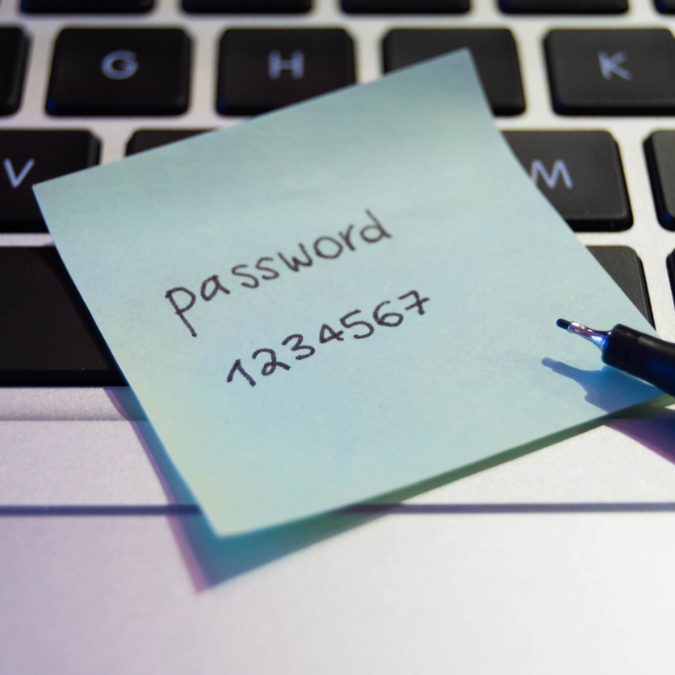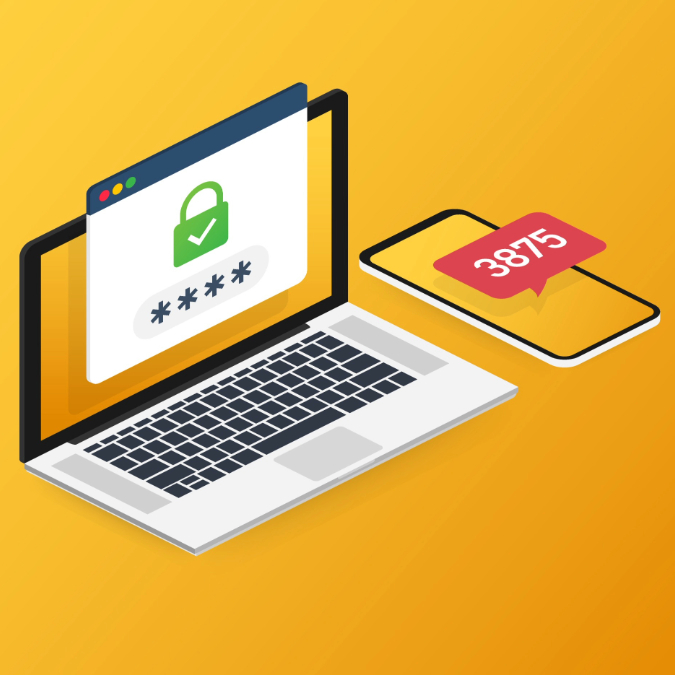
[ad_1]
In in the present day’s digital age, the web has turn into an integral a part of our each day lives, providing comfort, connectivity, and numerous alternatives. Nonetheless, together with its advantages come dangers, notably concerning cybersecurity. With over 2328 assaults per day, there’s a hacker assault on-line about each 39 seconds. There are some behaviors on-line that put you extra vulnerable to cybercrime than chances are you’ll bear in mind.
Cybercriminals always evolve ways to take advantage of vulnerabilities and steal delicate info from unsuspecting people. Whereas know-how has superior to fight cyber threats, people should even be vigilant and conscious of their on-line behaviors that may expose them to cybercrime. Listed below are 14 frequent on-line habits that may put you in danger.
1. Weak Passwords
In response to Verizon’s annual Knowledge Breach Index Report, as much as 80% of profitable information breaches consequence from compromised login credentials. Utilizing easy or simply guessable passwords makes it simpler for cybercriminals to entry your accounts.
As many as 2 in 3 customers are in danger for information breaches due to their passwords. Robust, distinctive passwords that mix letters, numbers, and particular characters are important for higher safety.
2. Reusing Passwords
A examine discovered that 34% of respondents use a variation of the identical password throughout a number of websites. Utilizing the identical password throughout a number of accounts will increase the chance of a safety breach. If one account is compromised, cybercriminals may achieve entry to different accounts.
3. Clicking on Suspicious Hyperlinks
Clicking hyperlinks in unsolicited emails, pop-up adverts, or social media messages can result in phishing scams or malware infections. At all times confirm the supply and legitimacy of hyperlinks earlier than clicking on them.
Cybercriminals are always altering their ways to make phishing scams extra plausible. Phishing emails and textual content messages typically inform a narrative to trick you into clicking on a hyperlink or opening an attachment. You would possibly get an surprising e-mail or textual content message that appears prefer it’s from an organization you recognize or belief, like a financial institution, bank card firm, or utility firm.
4. Ignoring Software program Updates
Neglecting to replace your working system, antivirus software program, internet browsers, and different functions leaves your units susceptible to identified safety vulnerabilities. Set up updates repeatedly to patch safety flaws and defend in opposition to cyber threats.
5. Downloading Unauthorized Software program
Downloading pirated software program, video games, motion pictures, or music from untrusted sources typically exposes customers to malware, ransomware, or different malicious software program hidden throughout the information.
6. Sharing Private Info
Revealing delicate private info corresponding to full identify, tackle, telephone quantity, or monetary particulars on social media platforms or unsecured web sites can result in id theft or fraud.
For those who consider your info has been compromised, you’ll be able to report it to the FTC. This will help you establish the subsequent steps and stop fraud and id theft sooner or later.
7. Utilizing Public Wi-Fi Unprotected
Connecting to public Wi-Fi networks with out utilizing a Digital Non-public Community (VPN) or different encryption measures exposes your information to interception by cybercriminals monitoring the community. This dangerous on-line habits makes you a simple goal for cybercrime.
8. Ignoring Privateness Settings
Failing to overview and regulate privateness settings on social media accounts, on-line profiles, or cell apps could inadvertently expose your private info to the general public or third-party advertisers.
Pew Analysis discovered that solely about one in 5 adults say they at all times or typically learn an organization’s privateness coverage earlier than agreeing to it.
9. Falling for Social Engineering Techniques
Cybercriminals typically make use of social engineering methods to control customers into divulging confidential info or performing actions that compromise safety, corresponding to posing as tech help or a trusted acquaintance.
10. Not Backing Up Knowledge
Failing to repeatedly again up vital information and paperwork can go away you susceptible to information loss within the occasion of a cyber assault, ransomware an infection, or {hardware} failure. You’ll be able to select to again up information to the cloud or exterior units.
11. Overlooking Electronic mail Safety
Opening e-mail attachments or downloading information from unknown senders with out verifying their authenticity can result in malware infections or phishing assaults.
12. Ignoring Two-Issue Authentication
Disabling or neglecting to allow two-factor authentication (2FA) on on-line accounts leaves them extra inclined to unauthorized entry, because it provides an additional layer of safety past only a password. 2FA normally requires your password and one other issue corresponding to a safety token or biometric issue.
13. Participating with Untrustworthy Websites
Collaborating in on-line actions corresponding to unlawful file sharing or playing on untrustworthy web sites will increase the probability of encountering malware or falling sufferer to scams. These on-line behaviors put you instantly vulnerable to cybercrime.
14. Not Monitoring Monetary Accounts
A current Ipsos ballot discovered that almost 1 in 3 People have been victims of on-line monetary fraud or cybercrime. Failing to repeatedly monitor financial institution statements, bank card transactions, and different monetary accounts for unauthorized exercise could delay detecting fraudulent fees or id theft.
Staying Secure On-line
Safeguarding in opposition to cybercrime requires consciousness, vigilance, and proactive measures to guard your self on-line. By avoiding these dangerous on-line behaviors and adopting good cybersecurity practices, you’ll be able to scale back your danger of falling sufferer to cyber threats and guarantee a safer digital expertise.
Bear in mind, staying knowledgeable and exercising warning are essential steps in defending in opposition to the ever-evolving panorama of cybercrime.
Learn Extra
15 Issues Sensible Folks Solely Depart To Charity In Their Wills
10 Shocking Methods Boomer Grandparents Are Splurging On Their Grandkids
(Visited 25 instances, 4 visits in the present day)

Teri Monroe began her profession in communications working for native authorities and nonprofits. As we speak, she is a contract finance and life-style author and small enterprise proprietor. In her spare time, she loves {golfing} together with her husband, taking her canine Milo on lengthy walks, and taking part in pickleball with mates.
[ad_2]















